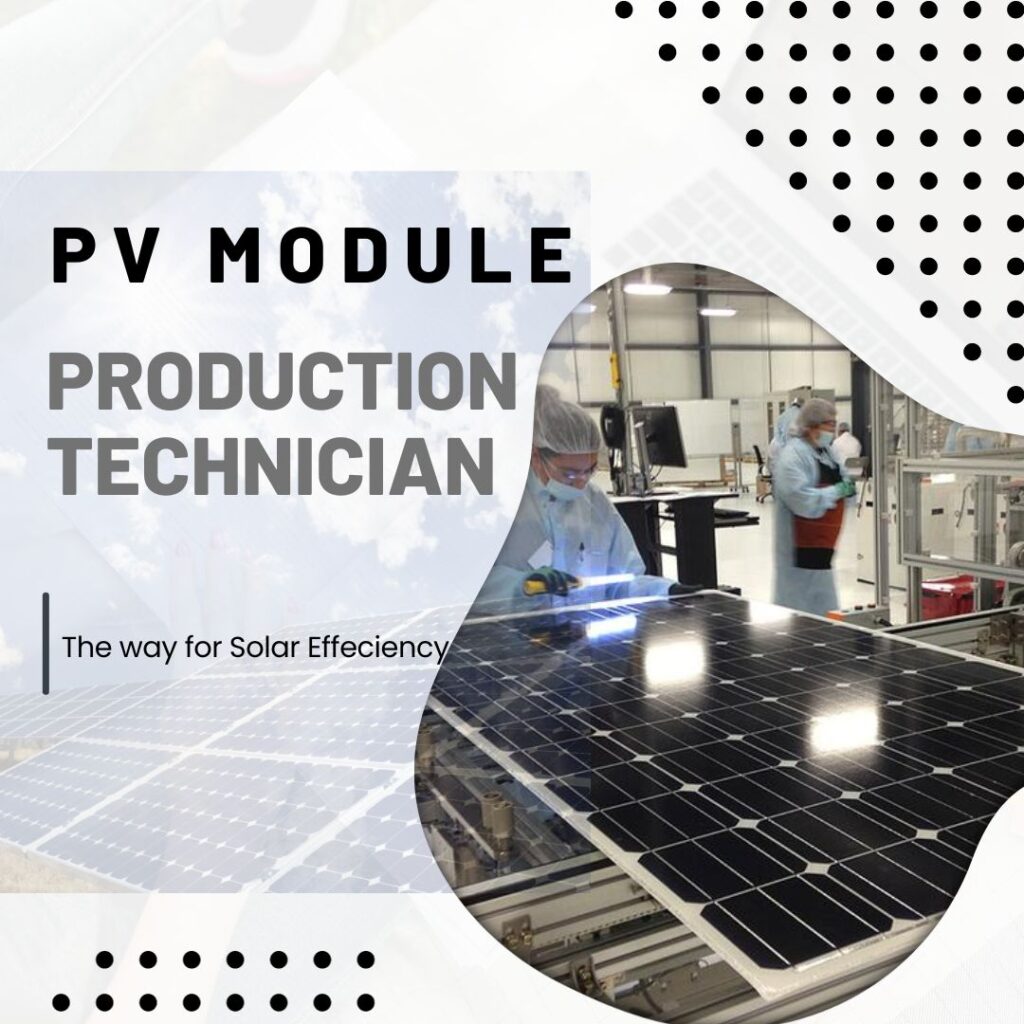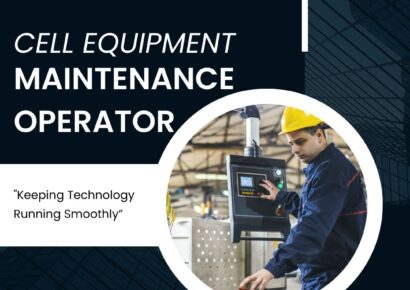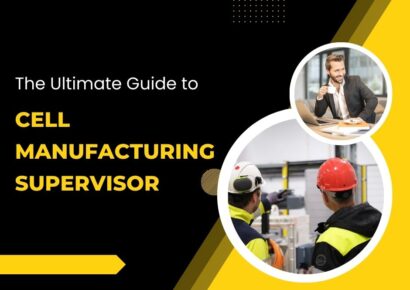Currently Empty: ₹0.00
About Course
A Manufacturing Technician-Production plays a pivotal role in the module manufacturing process. They are responsible for operating and maintaining production equipment, conducting quality checks, and ensuring the efficient assembly of solar modules. Technicians troubleshoot equipment issues, adhere to safety protocols, and follow standardized procedures to meet production targets and quality standards. Their expertise in machine operation, attention to detail, and commitment to safety are critical for the successful and consistent output of high-quality solar modules in a production setting.
Course Content
Basics to PV Modules
-
Introduction and Training of Photovoltaic Module Raw Materials
49:24 -
Basic introduction to Photovoltaic Module
53:25 -
Introduction to Efficient Module Technology
42:38 -
Process Flow Introduction
19:45
Production Prelamination
Production Lam & Post-lamination
Equipment Trainings
6s Occupational Health, Safety, and Environment
Tags








